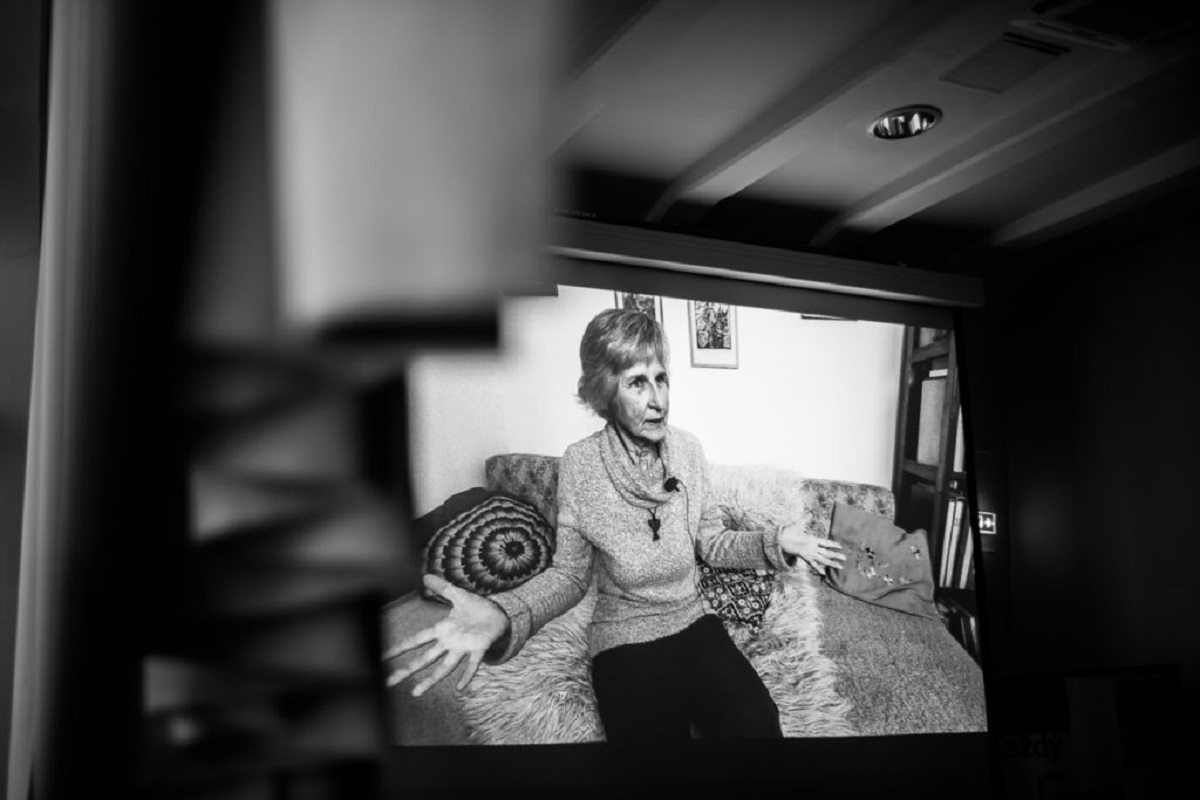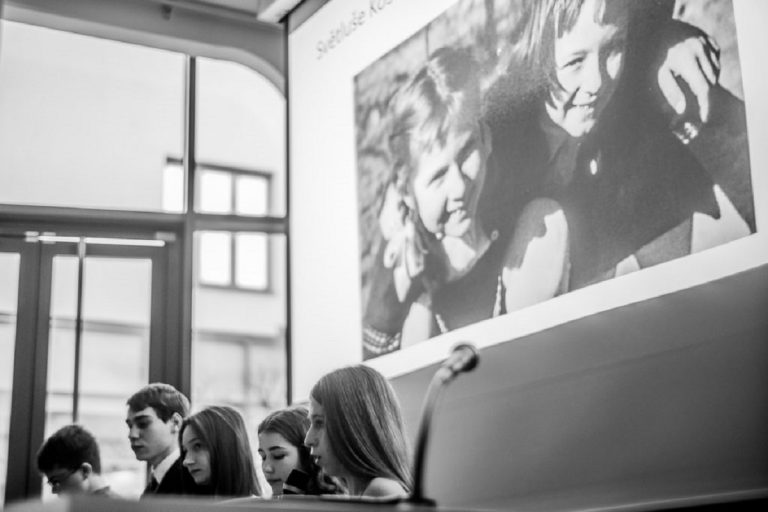“Stories of Our Neighbours”, an educational project created by the non-profit organization Post Bellum, has recorded the memories of almost 1,500 eyewitness all over the Czech Republic since its creation eight years ago. This week, Brno city councillors recommended that CZK 280,000 from the city budget for 2020 should go to support schools participating in this project. Photo: Presentation of the student team from Kridlovicka primary school. Credit: Post Bellum Archive.
Czech Rep., Oct. 18 (BD) – In a meeting on October 14th, Brno city councillors advised the city assembly to approve funding for “Stories of Our Neighbours”, an educational project that gives students the unique opportunity to record the memories of those around them. CZK 280,000 from the city’s 2020 budget should be allocated to support schools who applied.
“Stories of Our Neighbours” arrived in South Moravia in 2018, intended for 14 and 15-year-old pupils and students. Young people are bearing witness to personal accounts of the totalitarian regimes of the last century while documenting them. History then becomes an intimate relationship as they take on the role of active agents of collective memory.

The current covid-19 crisis offers new challenges to this ambitious project, but also opens new and unanticipated perspectives, as recognized by Jaroslav Suchy (KDU-CSL), Brno council member for Education: “Despite the highly uncertain current social situation, nine Brno schools signed up to discover and record witness stories, which I consider a great success. School teams will probably have to adjust the way they work, but I believe that they will cope with the difficulties in a creative way, even with the help of modern technology. And for witnesses, the opportunity to talk about their lives is one way out of social isolation. This will create distinctive documents about the past and the present at the same time.”
According to Post Bellum, since 2012, thousands of Czech schools and about 6,300 pupils have kept the memories of their fellow citizens alive – embracing their stories and their lessons. History becomes ever closer, opening the way to essential conversations about democracy and human rights.






